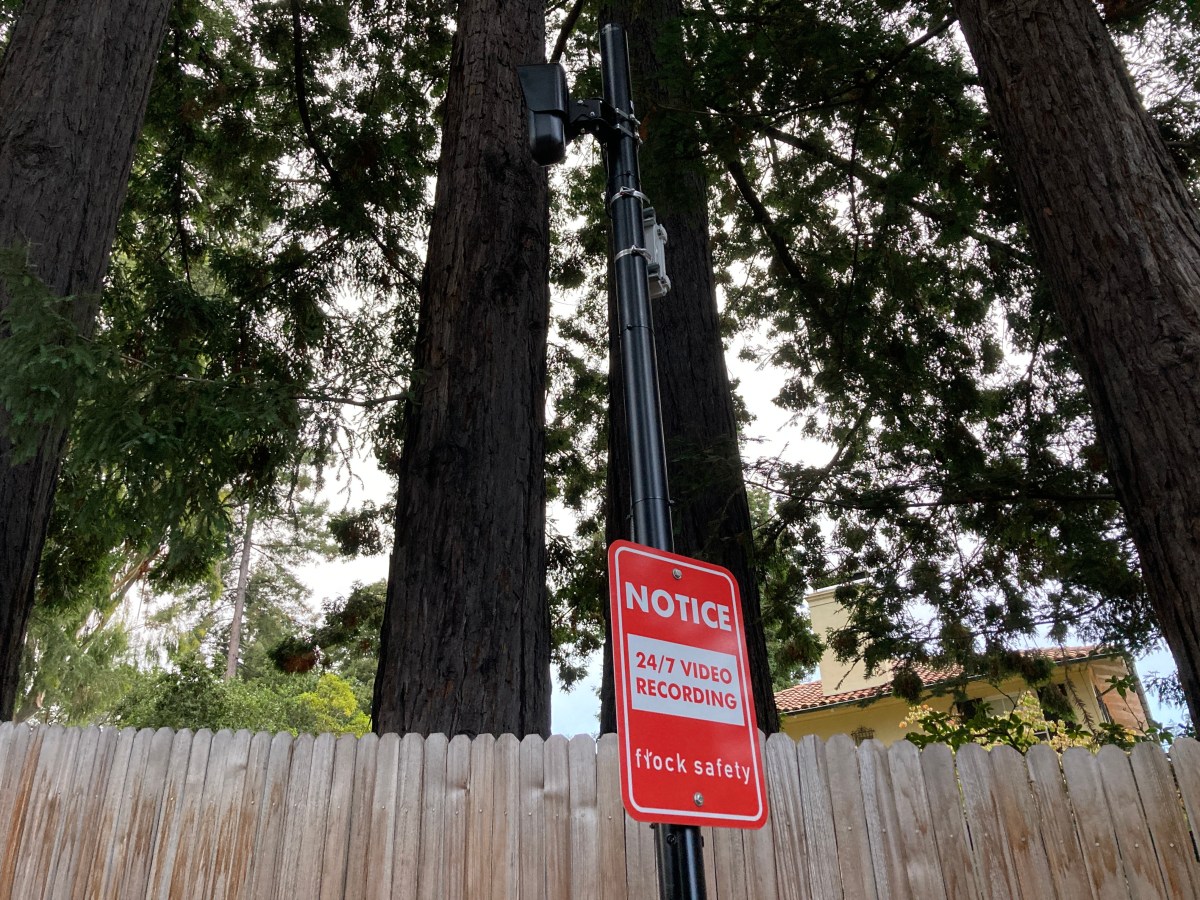Last October, the Oakland City Council approved purchase of 300 automated license plate readers from a security company called Flock Safety, which has sold similar systems to cities throughout California. Oakland planned to bankroll the new cameras with a $1.2 million loan from the state. City officials envisioned that Oakland police would run the license plate reader system, which is used to spot stolen or wanted vehicles that may be involved in crime.
But plans have apparently changed. A city source told The Oaklandside earlier this week that the state is considering having CHP take control of the 300 cameras—a detail hinted at in the governor’s announcement on Tuesday about officers deploying to the East Bay. On Thursday, a city spokesperson confirmed that this is the case.
“Operations and installation management for the plate reader and camera investment announced in 2023 will be managed under this effort, and most directly by CHP,” said city spokesperson Sean Maher.
Maher said questions about the details of the project should be directed to CHP. The Highway Patrol did not respond to questions.
The cameras will be a major expansion of police surveillance in Oakland. A decade ago, city residents protested against plans of spreading cameras and other surveillance systems throughout the city due to concerns over privacy, civil liberties, and potential abuses by the police. Now, many residents and city leaders are in favor of beefing up surveillance in response to a spike in property crime and shootings and homicides over the past three years.
Brian Hofer, chair of the Oakland Privacy Advisory Commission, said he’s never heard of CHP managing the license plate surveillance system for an entire city.
“That would be a first to my knowledge,” Hofer said.
The privacy commission, which is in charge of reviewing new technologies the city intends to use, approved a new policy for automated license plate readers last October so the city could purchase Flock Safety cameras. The cameras can automatically read license plates and run these through police databases, instantly flagging stolen or wanted vehicles. The Flock cameras reportedly have other powerful abilities. In a tweet last year, Thao said the cameras can “track criminal vehicles across the city based on their unique features such as make, model, and color.”
Hofer said California law forbids the sharing of certain data with out of state agencies, such as information about an individual’s reproductive healthcare. This prohibition would still apply to the data CHP gathers in Oakland. But there are other aspects of this potential arrangement that raise questions. For example, Hofer pointed out that CHP has a 60-day retention period for data it collects from automated license plate readers. Oakland and Flock agreed to a 30-day period.
“If they go 60 days, that means more accumulation of data, which would make the system more invasive from a privacy perspective,” he said.
With large data sets that track vehicle movements throughout a city and region over longer periods of time, it’s possible to reveal sensitive information about people, such as their home address, doctor’s visits, and relationships.
Hofer pointed out that Oakland’s surveillance ordinance wouldn’t apply to CHP, and the agency doesn’t have to give the city updates about its surveillance activities, which could extend to the Flock system. It remains to be seen whether CHP and Oakland develop an agreement that addresses these issues and others.
The city has shared few updates about the Flock project since it was approved almost four months ago. OakDOT recently told The Oaklandside that Flock Safety has not applied for any permits to begin installing cameras. Holly Beilin, a representative for Flock Safety, directed questions to OPD and city officials. Beilin noted that once a contract is signed, the permitting and installation process typically takes around 3-4 months, though other factors can affect the timeline.
Acting Police Chief Darren Allison said in an email this week that the Flock Safety contract work is done.
“The department is working with the State to complete the funding portion,” Allison said in the email reviewed by The Oaklandside. “We should be close to completion so they can begin installation. I just sent the camera prioritization for installation.”
Other details about the timeline, data sharing, and locations for the surveillance system remain unclear.
Public records obtained by The Oaklandside show that Flock Safety has also been working with several neighborhood groups to install surveillance systems. Last June, a Flock representative told OPD that the company was in talks with “private communities” that included Piedmont Pines, Oakmore, Crestmont, Oakland Chinatown Improvement Council, Montclair, Lakeshore, Trestle Glen, and Glen Highlands.
Members of some of these communities were actively communicating with city officials last year about how to integrate their privately purchased surveillance cameras with OPD’s license plate reader system. It remains to be seen whether these communities will pursue a similar arrangement with CHP.
For over a decade, OPD had a system of about 30 ALPR cameras mounted on police vehicles. The system was temporarily downed during the ransomware attack last February and the department elected to not restore it—a detail OPD revealed to the Privacy Advisory Commission in July.
In August, Mayor Thao announced that Newsom was loaning the city money to pay for a license plate reader system. Getting state funding was a big deal for Oakland. The city was short on cash after resolving a $360 million deficit last June. City leaders also missed the application deadline for a state grant worth millions of dollars to help target retail theft. Based on public records obtained by The Oaklandside, OPD wanted to use some of the grant dollars to pay for license plate readers, and Flock was pitching OPD on this idea in June 2023.
Flock Safety has deployed its systems in several Bay Area cities, including Piedmont and San Leandro. Berkeley approved an agreement with Flock Safety last October.

